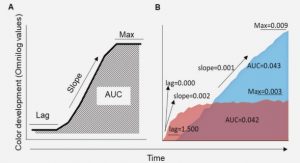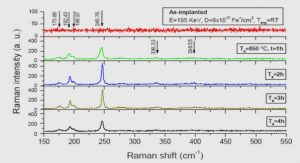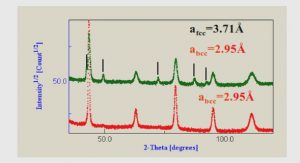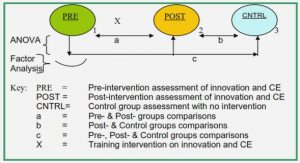Get Complete Project Material File(s) Now! »
Individual perceptions
The Health Belief Model incorporates perception as a core concept in its framework. The Oxford Dictionary of Current English (2001:663) defines perception as « a way of understanding or regarding something. » The Model (figure 2.1) posits that individuals’ overall perception of the degree of severity 51 of the disease and their susceptibility to the consequences of the disease in one hand, and the benefits of or barriers to taking a recommended health action on the other hand, determine their behaviour towards the disease. People perceive phenomena in different ways depending on a myriad of factors including cultural, religious, social or psychological experiences.
Perceived susceptibility to uncontrolled hypertension
Perceived susceptibility refers to patients’ views of the risk of having a disease such as hypertension or the complications of uncontrolled hypertension such as heart attack, kidney failure, or stroke (Glanz et al 2002:48). Since hypertension usually presents as an asymptomatic disease, patients must believe they are susceptible to develop complications with or without experiencing specific symptoms. Such a perception is based on sound knowledge of the disease. Patients with knowledge about the nature and course of hypertension as well as possible risks associated with noncompliance with treatment would likely perceive themselves susceptible to the disease and its complications.
Health locus of control
Health locus of control is a socio-psychological variable in the social learning theory of personality that categorises patients’ health seeking behaviour into two broad groups as either internalists or externalists. Internalists are persons who believe they are responsible for their health or illness and take actions to prevent or protect their health. They believe that « certain events and happenings are due to their own actions and behaviours, that is, their own actions are directly responsible for the events in their lives » (Moshki, Ghofranipour, Hajizadeh & Azadfallah 2007:295). Internalists are likely to comply with their medications or take advice about their health.
Structural factors
Patients’ knowledge of hypertension is important in the management of the disease. Research has shown that a high level of knowledge is important to achieve adequate control of blood pressure and lack of knowledge is a significant predictor of poor blood pressure control. This view was supported by a study in the USA by Knight et al (2001:809). The researchers also found that among diagnosed hypertensive persons’ awareness and knowledge of the disease was strongly related to good blood pressure control. Patients, who indicated lack of knowledge of what a normal systolic blood pressure value of ≤140mmHg signifies, had significantly higher blood pressures than those who knew.
Health care provider factors
Health care professionals influence the compliance behaviour of persons suffering from hypertension. The study by Benson and Britten (2002:874) revealed that compliance with antihypertension medication treatment is promoted if patients experience their encounters with their doctors positively, receive adequate advice, trust the doctor and experience improvement in blood pressure control. Thus physicians play an important role in enhancing medication compliance by their patients.
CHAPTER 1 ORIENTATION TO THE STUDY :
- INTRODUCTION
- RESEARCH PROBLEM AND BACKGROUND TO THE STUDY
- Research problem
- Hypertension as a public health problem
- CONTEXTUALISING THE RESEARCH PROBLEM Location
- Socio-economic development Demography
- Socio-cultural characteristics of Seychelles
- Health care system
- The structure of the national health care system
- Organisation of the Ministry of Health
- Health financing
- STATEMENT OF THE RESEARCH PROBLEM
- AIM OF THE STUDY
- Research purpose
- Research questions
- SIGNIFICANCE OF THE STUDY
- DEFINITIONS OF KEY CONCEPTS
- Blood pressure
- Drug treatment
- Compliance and adherence
- Compliance with prescribed anti-hypertensive drug treatment
- Compliance with lifestyle modifications
- Diagnose
- CHAPTER 2 LITERATURE REVIEW
- INTRODUCTION
- HYPERTENSION
- Definition
- Hypertension types Primary hypertension
- Secondary hypertension
- Epidemiology of hypertension
- Pathophysiology of hypertension
- Vascular volume and peripheral resistance
- The autonomic nervous system
- Renin-Angiotensin system
- MANAGEMENT AND CONTROL OF HYPERTENSION
- Diagnosis of hypertension
- Measurement of blood pressure
- Technique of measurement
- Variation in blood pressure
- Classification of hypertension
- Treatment of hypertension
- Lifestyle modification
- Drug treatment of hypertension
- COMPLIANCE
- Definition of compliance
- Compliance to hypertension treatment
- Consequences of non-compliance
- Consequences for the individual
- Consequences for the society
- Measurement of compliance
- CHAPTER 3 RESEARCH DESIGN AND METHOD
- INTRODUCTION
- PHILOSOPHICAL FOUNDATION
- Quantification of data
- Deductive reasoning
- Objectivity
- Empiricism
- Verifiability
- RESEARCH DESIGN
- RESEARCH METHOD
- Sample selection
- Population
- Eligibility criteria
- Sampling technique
- Sample size
- Data collection
- Data collection methods
- Data collection instruments
- Reliability and validity of data collection instruments
- DESIGN VALIDITY
- DATA ANALYSIS
- CHAPTER 4 PRESENTATION OF RESEARCH FINDINGS
- CHAPTER 5 CONCLUSIONS AND RECOMMENDATIONS
GET THE COMPLETE PROJECT
FACTORS AFFECTING COMPLIANCE WITH ANTI-HYPERTENSIVE DRUG TREATMENT AND REQUIRED LIFESTYLE MODIFICATIONS AMONG HYPERTENSIVE PATIENTS ON PRASLIN ISLAND






